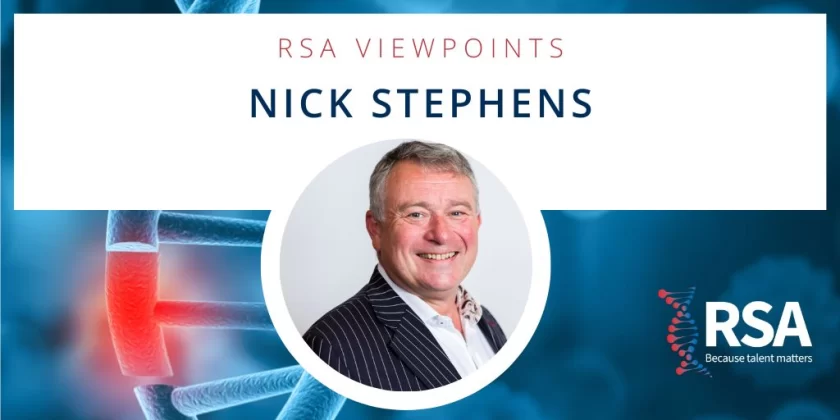Rise of the centenarians
By Nick Stephens
What do increasing life spans and age-related diseases mean for pharma?
An industry is forming around human longevity to treat age-related diseases and extend our “health span”. What does this mean for the pharmaceutical industry? How do we tackle age-related diseases like dementia?
I joined a panel discussion at Pharma Integrates 2022 to explore these pressing questions. The session was facilitated by Lord James O’Shaughnessy, Senior Partner at Newmarket Strategy. The other panellists included Tina Woods, Founder and CEO at Collider Health; Samantha Benham-Hermetz, Director of Policy and Public Affairs at Alzheimer’s Research UK and Giovanna Mallucci, Founding Principal Investigator at Altos Labs. I’ve outlined my key takeaway messages from the session below.
Shifting the focus from life span to health span
On 15th November 2022, the world population passed the 8 billion mark. As the pharma industry continues to develop innovative new treatments to extend our lives, we need to prepare to face the challenges associated with ageing populations. Many “developed” countries, such as Japan, are already experiencing a demographic bulge, with a growing proportion of elderly people needing care, and a declining proportion of financially-productive people who can pay for and provide that care. The key will be to focus on improving health span – the number of healthy years you live – rather than life span. This will require a new approach to medicine that supports healthy life into the 70’s 80’s and 90’s, preventing people getting sick, rather than a traditional healthcare system that simply treats sick people and manages decline as we age.
Dementia: the hidden pandemic
Giovanna Mallucci drew attention to the hidden pandemic of dementia. “In the over-70s there’s a 1 in 3 chance of dementia, which increases to 1 in 2 for over 80s,” she began. “You can’t cure dementia. But you can slow it. There are lots of ways to alter the course of the disease,” she said, explaining that the real societal and economic cost of dementia comes from institutionalisation. Helping people to live independently for longer and slowing down the rate of disease progression is crucial to reducing the burden of neurodegenerative diseases.
Samantha Benham-Hermetz emphasised the importance of early diagnosis, stating, “People are seeing clinicians when they’re already experiencing symptoms, but the changes in the brain are happening up to 15 years before – that’s when we need to be intervening.” For instance, detecting subtle changes to speech patterns or gait could indicate a risk of dementia years before other more serious symptoms appear. She explained the potential for using a much wider range of diagnostic tools, such as digital biomarkers, as well as blood-based biomarkers, to detect neurodegeneration.
Preventative health models
Tina Woods called for a paradigm shift towards a preventative health model, outlining the need to understand the link between the biological, psychological, and behavioural aspects of ageing. She argued that we need to look beyond doctors and hospitals and take a holistic approach to health, considering all the factors that influence our wellbeing, from our cells to our cities. AI and smart technologies offer great potential to help create environments where people can thrive.
Taking the long view
A major theme throughout the discussion was the importance of taking a lifetime approach to health. Tackling ageing will require a radical new funding model that takes a much longer-term view than politicians and many investors take. It will need to incorporate a wider range of funding sources too. This will require support from higher level organisations such as nation states, pension funds and foundations. Overall, the panel concluded that the healthcare industry needs to put more investment into supporting healthy lifestyles and early diagnosis, as well as continuing to drive innovation to discover the treatments of tomorrow.
If you want to talk more about this or any other related topic, please do contact me at Nick.Stephens@theRSAgroup.com.